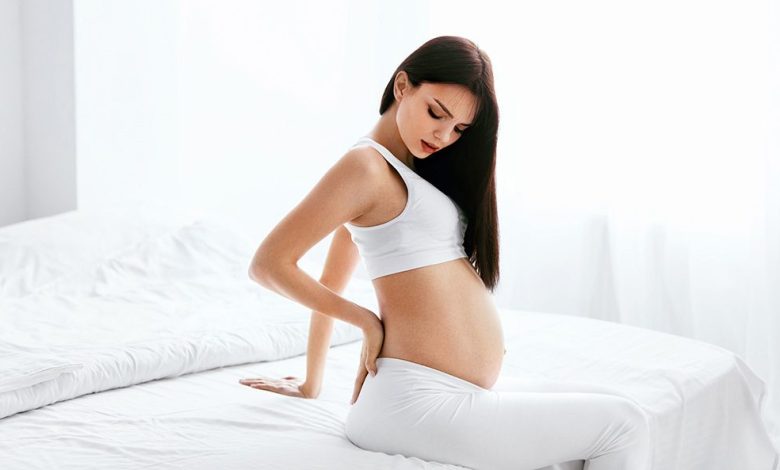Joint Pain and Pregnancy: How to Manage It

Pregnancy is a beautiful and miraculous journey, but it can also come with its own set of challenges. One common struggle that many expectant mothers face is joint pain. As your body goes through the incredible changes of growing a tiny human, it’s normal for your joints to experience discomfort. However, this doesn’t mean you have to suffer through the pain. Some effective ways to manage joint pain during pregnancy. Whether you are experiencing persistent cough that usually brings up phlegm, natural treatment for bronchiectasis, breathlessness, or simply the general discomfort of joint pain and pregnancy, these tips will help you find relief and enjoy this special time in your life to the fullest. So, let’s dive in and discover how to ease joint pain and make your pregnancy journey as comfortable as possible.
Why Joint Pain Occurs during Pregnancy
As your pregnancy progresses, your body undergoes several changes to accommodate the growing baby. One key change is the release of a hormone called relaxin. This hormone, true to its name, helps your body relax and stretch, preparing it for childbirth. However, relaxin also affects your joints, making them more flexible and, unfortunately, leading to Joint Pain and Pregnancy. Weight gain during pregnancy can also contribute to discomfort in your joints, as your body adjusts to carrying the extra load. In addition, other symptoms such as A Persistent Cough That Usually Brings Up Phlegm, often associated with conditions like bronchiectasis, can exacerbate joint pain due to the additional strain it places on your body.
While medical attention is crucial for conditions like bronchiectasis, you can also explore natural remedies for bronchiectasis to complement your treatment and help manage your symptoms. Recognizing the factors contributing to Joint Pain and Pregnancy will empower you to better manage your discomfort and maintain a high quality of life throughout this transformative journey.
The Common Areas of Joint Pain during Pregnancy
Joint pain during pregnancy isn’t isolated to one particular area. Some of the most commonly affected areas are the lower back, hips, and knees, but joint pain can manifest anywhere in the body. Your lower back, for instance, may bear the brunt of your pregnancy weight gain, leading to discomfort and pain. Hip joints can also be affected, particularly as relaxin hormone levels increase, causing ligaments to loosen and strain. You may even experience pain in your knees and feet as they work overtime to support your increasing weight.
Complications such as Breathlessness, wheezing, or Chest Pain can further strain your body, exacerbating joint discomfort. If you’re also dealing with symptoms of bronchiectasis like persistent coughing, it’s essential to manage these symptoms along with your joint pain. Consider exploring natural remedies for bronchiectasis, such as steam inhalation or chest physiotherapy, to help ease your discomfort. Remember, your body is doing an extraordinary job and it’s important to give it the care and attention it needs during this precious time.
Simple and Safe Ways to Alleviate Joint Pain at Home
Finding relief from joint pain doesn’t always require a trip to the doctor’s office. Simple, safe strategies can be employed at home to help manage discomfort. Regular gentle exercises, like yoga and swimming, can strengthen your muscles and support your joints. Opt for a nutritious diet rich in anti-inflammatory foods like berries, fatty fish, and leafy greens, which can ease joint pain. Hydration is also key, so keep your water bottle handy. Warming up your joints with a hot water bottle or warm bath can provide comfort.
But if symptoms persist or if you’re Coughing Up Blood or Blood-stained Phlegm – a potential sign of conditions like bronchiectasis or Rheumatoid Arthritis Due To Smoking – seeking medical attention is vital. While these at-home strategies can provide relief, it’s crucial to listen to your body and seek professional help when necessary. Implementing these methods can make a significant difference in managing Joint Pain and Pregnancy, allowing you to focus on the exciting journey ahead.
The Role of Good Posture and Ergonomics in Managing Joint Pain
Maintaining good posture and ensuring ergonomic surroundings play a vital role in managing Joint Pain and Pregnancy. Slouching or poor posture can put extra stress on your joints, leading to increased discomfort. While standing, strive for a neutral spine alignment with your ears, shoulders, hips, and knees in a straight line. When sitting, opt for a chair with good back support and keep your feet flat on the floor. Proper ergonomics at work and home can also significantly reduce joint stress. If you’re experiencing symptoms like Wheezing or chest pain, improving your posture can also aid your breathing and alleviate these symptoms. Incorporate gentle stretches throughout the day to strengthen your core muscles and support good posture. Remember, maintaining good posture and ergonomics isn’t about perfection but about making small adjustments that enhance your overall comfort during this special period in your life.
When to Seek Medical Help for Joint Pain during Pregnancy
Navigating joint pain and pregnancy can be a challenging journey. While mild discomfort can be a normal part of this transformative process, it’s important to know when it’s time to reach out to your healthcare provider. If your joint pain is severe, persistent, or accompanied by swelling, redness, or warmth, it may indicate a more serious underlying issue that needs medical attention. Similarly, if joint pain is disrupting your daily activities or sleep, or isn’t responsive to at-home remedies, it’s a clear signal to seek professional help.
It’s also crucial to contact your doctor if you’re experiencing a persistent cough that usually brings up phlegm, which could be an indicator of other health concerns. Remember, your health and well-being are paramount during pregnancy, and there’s no harm in seeking advice or assistance when you need it. Trust your body and don’t hesitate to communicate any concerns to your healthcare team. Your comfort and peace of mind are vital to this beautiful journey of motherhood.
The Importance of Mental Health in Managing Physical Pain
An often-overlooked aspect of managing physical discomfort like joint pain during pregnancy is the role of mental health. Anxiety and stress can exacerbate physical symptoms, including joint pain, breathlessness, or even a persistent cough that usually brings up phlegm, a common symptom of bronchiectasis. Practicing mindfulness and relaxation techniques can help alleviate stress, leading to improved management of physical discomfort. Prenatal yoga and meditation, for example, not only provide physical benefits but also foster a sense of calm and reduce anxiety.
Furthermore, having a positive mindset can be a potent Natural Treatment for Bronchiectasis, complementing other natural remedies for bronchiectasis, such as steam inhalation or physiotherapy. Remember, it’s okay to ask for help if you’re feeling overwhelmed. Reach out to friends, family, or professionals for emotional support. Taking care of your mental health is a crucial part of the pregnancy journey and can significantly influence your physical well-being, making it easier to manage the challenges of joint pain and pregnancy.
The Postpartum Period: Dealing with Residual Joint Pain
After giving birth, you may continue to experience joint pain. This is common and often due to the gradual decrease of relaxin hormone in your body, the normal healing process, and the physical demands of caring for a newborn. It’s crucial to continue gentle exercise, maintain a nutritious diet, and focus on good posture to help your body recover. If you’re also dealing with a persistent cough that usually brings up phlegm, it’s important to address this as well.
You can explore Natural Remedies for Bronchiectasis like steam inhalation, controlled breathing techniques, or chest physiotherapy to manage your symptoms. The postpartum period can be challenging, but remember, every mother’s journey is unique and it’s okay to seek professional help if joint pain persists or if symptoms of bronchiectasis, such as a persistent cough, continue. Your body has accomplished an amazing feat through pregnancy and childbirth, so be patient with yourself as you adjust to this new chapter of motherhood. Taking care of your health is essential, not just for you, but also for your newborn.




